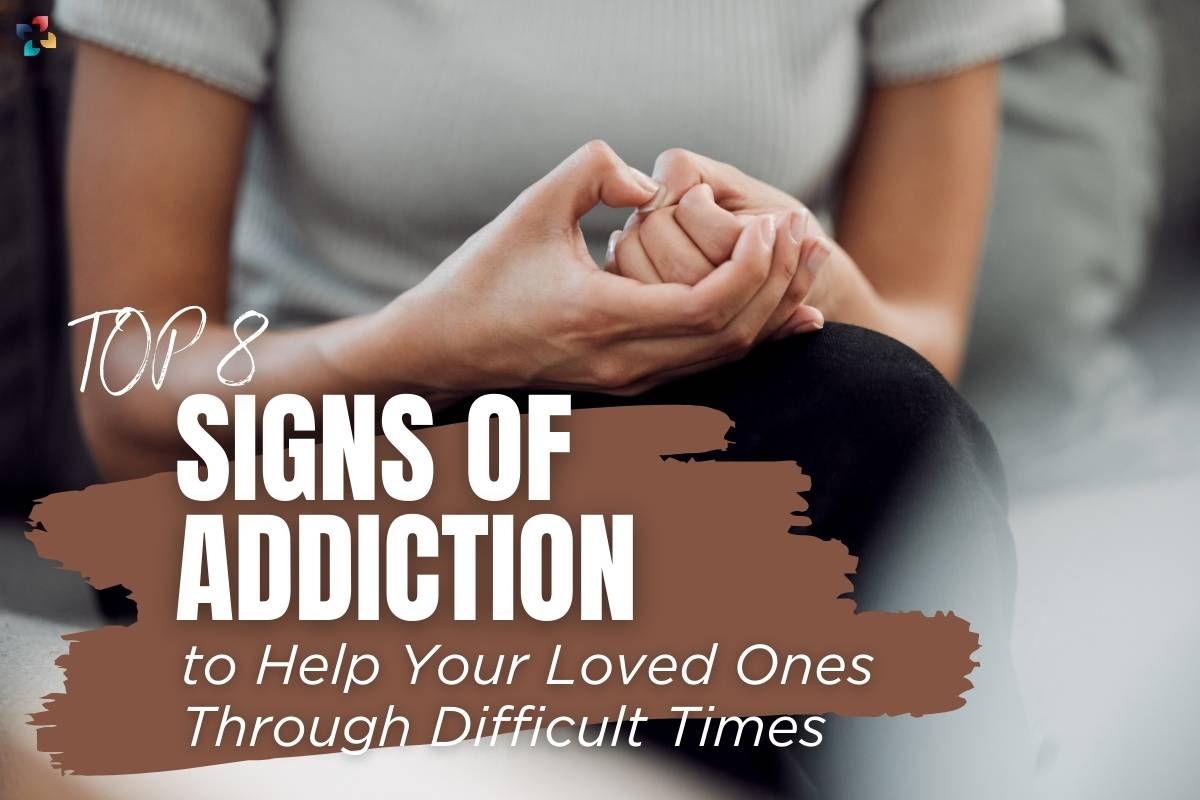Addiction is probably one of the most complex and challenging issues people face today, especially the youth. Battling addiction is a tough phase for both, the person going through it and the people helping him/her through it. So, when someone is struggling with addiction, it can really be emotionally and mentally taxing for all the people around him/her. To provide the right support to your loved ones struggling with addiction, recognizing the signs of addiction is the first and the most crucial step.
In this comprehensive guide, we’ll explore the top eight signs of addiction, helping you better understand the problem and empowering you to be a source of guidance during difficult times.
Here are 8 Signs of Addiction to Help Your Loved Ones Through Difficult Times:
1. Change in Priorities and Interests
One of the early signs of addiction is a noticeable shift in priorities and interests. Individuals who were once passionate about their hobbies, careers, or personal relationships may suddenly lose interest in these activities. Instead, their primary focus becomes obtaining and using the substance they’re addicted to. This change can lead to isolation and withdrawal from their usual social circles and responsibilities.
2. Increased Tolerance

As addiction progresses, the body often builds a tolerance to the substance, requiring higher amounts to achieve the desired effect. Individuals with addiction may consume larger quantities or more frequent doses of the substance, resulting in a dangerous cycle that can lead to severe health consequences.
3. Withdrawal Symptoms
Withdrawal symptoms occur when an addicted individual attempts to stop using the substance. These symptoms can range from mild discomfort to severe physical and psychological distress. Common withdrawal symptoms include anxiety, irritability, nausea, and intense cravings for the substance. Experiencing withdrawal is a clear indication of physical and psychological dependence.
4. Neglect of Responsibilities
Addiction can lead to a neglect of responsibilities at home, work, and in other areas of life. Individuals may miss work, neglect household duties, and disregard financial obligations. This decline in responsibility can lead to strained relationships, job loss, and financial hardship.
5. Secrecy and Deception
Addiction often goes hand in hand with secrecy and deception. Individuals with addiction may hide their substance use from loved ones, lie about their activities, and become evasive when questioned. This behavior stems from a fear of judgment and the desire to protect their addiction.
6. Social and Behavioral Changes
The signs of addiction may manifest in a range of social and behavioral changes. Individuals may become increasingly irritable, aggressive, or apathetic. They may associate with a new group of friends who also use the substance, adopting new social circles that reinforce their addiction.
7. Deteriorating Physical Health
Substance abuse can have a detrimental impact on an individual’s physical health. Signs of addiction-related health issues may include unexplained weight loss, poor hygiene, frequent illnesses, and the presence of injection marks or other physical signs related to the method of substance use.
8. Financial Struggles
The financial consequences of addiction can be significant. Individuals may experience mounting debt, sell personal belongings to fund their addiction, or engage in illegal activities to obtain the substance. Financial struggles can contribute to further stress and hardship.
Why Recognizing Signs of Addiction Matters
Recognizing the signs of addiction is essential for several reasons:
1. Early Intervention
Identifying addiction in its early stages allows for early intervention and treatment, increasing the likelihood of a successful recovery.
2. Reducing Harm
Understanding the extent of the addiction can help minimize harm to the individual’s health, relationships, and finances.
3. Providing Support
Recognizing addiction enables loved ones to offer support, encouragement, and resources to help the individual seek treatment.
4. Promoting Awareness
Raising awareness about addiction is crucial for reducing the stigma associated with the condition and encouraging open conversations about recovery.
How to Approach a Loved One with Addiction
Approaching a loved one with addiction requires sensitivity, compassion, and an understanding of the complexities involved. Here are some steps to consider when addressing this challenging issue:

1. Choose the Right Time and Place
Find a comfortable and private setting to discuss the matter, ensuring that your loved one feels safe and not cornered.
2. Use “I” Statements
Express your concerns using “I” statements, which focus on your feelings and observations rather than placing blame. For example, say, “I have noticed changes in your behavior that worry me,” rather than, “You are ruining your life.”
3. Avoid Judgment
Approach the conversation without judgment. Remember that addiction is a medical condition, not a moral failing. Show empathy and understanding.
4. Offer Support
Let your loved one know that you are there to support them in seeking help and treatment. Share information about available resources and treatment options.
5. Set Boundaries
While offering support, it’s crucial to establish healthy boundaries. Be clear about the behaviors you will not tolerate, such as theft or endangering others.
6. Encourage Professional Help
Encourage your loved one to seek professional help from addiction specialists or treatment centers. Offer to assist in finding suitable treatment options.
7. Seek Support for Yourself
Dealing with a loved one’s addiction can be emotionally challenging. Consider seeking support from friends, family, or support groups to help you navigate this difficult journey.
The Importance of Seeking Professional Treatment
Addiction is a complex condition that often requires professional treatment and support. Many individuals with addiction struggle to overcome it on their own. Professional treatment options may include:
1. Detoxification
Medically supervised detoxification helps individuals safely withdraw from the substance while managing withdrawal symptoms.
2. Rehabilitation Programs
Inpatient or outpatient rehabilitation programs provide comprehensive treatment, including therapy, counseling, and support for recovery.
3. Counseling and Therapy
Individual and group therapy sessions are essential components of addiction treatment. They help individuals address the root causes of addiction and develop coping strategies.
4. Medication-Assisted Treatment

In some cases, medication may be used in conjunction with counseling to manage cravings and withdrawal symptoms.
5. Support Groups
Support groups, such as Alcoholics Anonymous or Narcotics Anonymous, provide a sense of community and shared experiences for those in recovery.
6. Aftercare and Relapse Prevention
Ongoing support is crucial for maintaining sobriety. Aftercare programs and relapse prevention strategies help individuals avoid returning to substance use.
Conclusion: Being a Source of Compassion and Support
Addiction is considered to be a challenging and often debilitating condition that can affect anyone, regardless of age, gender, etc. The right path to recovery is often filled with various challenges, but the most important factor here is to recognize the signs of addiction in your loved ones and support them.
When you decide to approach the situation with a sense of understanding, compassion, and the knowledge of the available resources, you can be a source of great support to your loved ones during these difficult times. Addiction is a journey, and with the right support and treatment, there is hope for a brighter, healthier future.
Also Read: 7 Signs to Identify Depression











